Pamela Barnes Acoustic Mysteries by Patricia Rockwell Book Tour and Giveaway :)
Sounds
of Murder
Pamela
Barnes Acoustic Mysteries Book 1
by
Patricia Rockwell
Genre:
Cozy Mystery
SOUNDS
OF MURDER tells a tale of academic intrigue and death. At Grace
University, a small southern college, no one in the Psychology
Department likes Charlotte Clark, so no one is particularly upset
when she is found murdered in the department’s million-dollar
computer lab. But because she discovered the body, Associate
Professor Pamela Barnes feels obligated to find Charlotte’s killer.
When she discovers a recording of the murder that was accidentally
produced during Charlotte’s struggle with the killer, she begins
her own investigation.
Along
the way, Pamela agonizes with her own conscience as she fights her
growing fear. She attempts to understand her mysterious Department
Chair, keep her curious colleagues informed, placate her protective
husband, and avoid antagonizing a local rube detective who belittles
her efforts--all while she struggles to make sense of the sounds on
the recording.
As
she gets deeper and deeper into her analysis—trying to connect what
she hears in the recording with sounds from people (and potential
killers) around her--she gets closer and closer to the killer.
However, the killer is observing Pamela’s efforts and resolving to
stop her.
**Only
99 cents**
Pamela followed Kent, running behind him around the corner of the main hallway towards the experimental computer laboratory at the far end of the side hallway. She could see in the distance that the door to the lab was wide open and the lights were on. Kent ran through the doorway and Pamela followed on his heels. He went immediately to the first row of computer carrels, to Carrel #4, one of the department’s special "souped up" computers. Pamela could see a woman in the carrel bent over the computer desk, a tousled head of blonde curls. As she drew closer, she realized that the woman was Charlotte Clark. "It's Dr. Clark," said Kent, "Dr. Barnes! I think she's dead!" Pamela's heart seemed to stop beating as she froze in place, staring at Charlotte, who was seated, bent over the desk. She saw immediately that the power cord from a set of headphones was wrapped tightly around her neck, the headphones themselves hanging uselessly down the side of Charlotte's neck. The side of Charlotte's face was tinged grayish-blue. "Oh, my God!" Pamela whispered, suddenly digging in her purse on her shoulder. After a few seconds of scrounging, she located her cell phone and tapped in the number for the campus police. The call was answered immediately. "Please," she spoke as calmly as she could, "please, come quickly. Someone has been hurt...I think dead." Kent stood by, slightly behind her, waiting as she made the all important call. She continued to speak into her cell phone. "I'm at Blake Hall, on campus. The experimental computer lab...on the main floor--on the north side, by the parking lot entrance––all the way to the end of the side hallway." She turned her head to Kent and whispered to him, "They're on their way. Stay here." "Don't worry, Dr. B." he responded, "I'm not going anywhere." She returned her attention to the cell phone as she heard the voice ask additional questions. "Yes, this is Dr. Barnes, Pamela Barnes. I'm in the Psychology Department. I just found her...Dr. Clark...here...in the lab." She looked over at Charlotte. "Please, hurry!" she urged into the cell phone. Then she listened as the voice at the other end was evidently giving her instructions. "Okay, just a minute." She handed the cell phone to Kent. "Hold this and stay on the line," she said to him. Then she carefully bent over Charlotte Clark and placed her hand firmly on Charlotte's neck, feeling for a pulse. There was none. After a few seconds, she then gingerly bent down close to Charlotte’s face to listen for breath noises. Charlotte's head was turned to the left, her mouth open. Pamela placed her ear close to Charlotte's mouth. All she sensed was the smell of cigarette smoke—Charlotte was a habitual smoker. It was quite obvious to Pamela that there was no breath coming from Charlotte Clark's body. She was dead. She then stood up and stepped back from the body, her eyes never leaving the corpse. As she held her hand out to Kent, he placed the cell phone back in it. "I just checked for pulse and breathing sounds," she told the police dispatcher on the phone. "I couldn't feel or hear anything." She continued listening to the voice and the obvious directions that were being given. "No," she answered into the phone, "Don't worry. I won't touch anything. Yes, I’ll stay right here." She turned her head to Kent and whispered to him, "Kent, please go to the outside entrance and direct the campus police here when they arrive. It should be any minute now." "Right, Dr. B," he said, hurrying out the lab door, "I'm on my way!" With Kent's departure, Pamela was alone. As she stared down at the body of Charlotte Clark, it suddenly dawned on her exactly what she was seeing. This was not a natural death. Charlotte didn't keel over from a sudden heart attack. The power cord wrapped around her neck made it perfectly clear that Charlotte had been murdered.
FM
For Murder
Pamela
Barnes Acoustic Mysteries Book 2
Who
shot the disk jockey while he was on air? No one saw the killer, but
many heard the murder on the radio. Local police are mystified and
ask Psychology professor and acoustics expert Pamela Barnes to assist
them in investigating the crime. Can she determine who shot the
deejay just by listening to the radio station’s audio recording of
the killing? And how does this crime connect to the impending death
of a wealthy carpet manufacturer hundreds of miles away? And the
driven behavior of his conscientious son who hides a very important
secret? Unknown to Pamela, another thread of this strange mystery is
about to unravel. Will she be able to solve it before another victim
is claimed?
In
FM FOR MURDER, the second in Patricia Rockwell's acoustic mystery
series, we follow feisty amateur sleuth Pamela Barnes who doesn’t
let academic duties prevent her from fighting crime. And Pamela
fights crime with the tools she knows best—sound waves.

“Okay,
folks out there in radio land, that was Calliope’s Doom with their
new song, ‘Cursed Bones.’ Their newest tune, following closely on
the heels of their first big, success—‘Entrails of Love.’ This
is Black Vulture with the best of death and dying, torture and blood.
The most alternative of alternative rock for those of you who have
nothing better to do on a Saturday night. Make that Sunday morning
now here at KRDN, 933 on your FM radio dial. Just a few minutes
after midnight. And for those of you crazy enough to stick with me
until 4 a.m. (or should I say, those of you, without anything more
interesting to do), I’ll be playing a host of your favorite songs
from some of the best alternative bands in the country. For
example, there’s a new CD I just got in from one of my favorite new
bands—Ochre Fugue. As you know, Ochre Fugue recently played locally
to a packed crowd at the Blue Poppy in downtown Reardon. That was a
gig, wasn’t it? Obviously, they have lots of fans here in our
little berg. I was lucky enough to get to interview Jake Millet with
the band. I know, I know; you’re all jealous. Well, eat my liver.
Getting to interview bands is one of the perks—one of the very
few—of my job here at KRDN. Believe me, I don’t work here for the
pay (hope the station manager isn’t listening). Ah,
shoot! Gotta do a commercial now. This one is for—hmm, let’s
see—Avery’s Auto Repair on South Jackson. Let me try to read this
with some energy: ‘Hey, guys (and ladies), Avery’s will fix your
wheels for a fair price’—and let’s face it—most of us don’t
have new cars so we probably need a fix-up more often than not,
right? But, ‘the Avery brothers have been in Reardon for—ever.
Simple, honest, repair work. They don’t have a fancy location or
building, but they do good work. So, check ‘em out.’ And I’d
add to that--especially you students. I mean, Christmas break’s
coming up in a week or two and if you’re planning on driving home
to visit Mommy and Poppy you’d better be sure your wheels will make
the trip. And you’d better be sure you arrive wearing clean clothes
too; parents like that that sort of thing. So I hear. Okay,
now, as I said before, I’m going to be playing a track from Ochre
Fugue’s new CD. In just a minute. What are you waiting for, right?
I first heard this group in the Big Easy, several years ago. I was
makin’ the rounds of the clubs and ran across this band at a
vampire underground party. What a sound they have. Dark. Scary. Like
blood, you know, from the coffin. Makes you cringe all over. The bass
player has a great get-up. I’d describe ‘em in more appropriate
language if it weren’t for the FCC breathin’ down my neck. You
know what I’d like to say, though, don’t you? All two of you.
Don’t expect there’s too many fans listening in after midnight on
a Saturday—unless you’re a real loser. Like me. Still working on
your graduate degree after six years. Right? Anyway,
I got the Ochre Fugue disc prepped for you. Let’s see, which track
should I play? Oh, wait. Just heard a car pull up outside the studio.
Looks like I’ve got a visitor. Well, what do you know! That hardly
ever happens this far out in the boonies—especially this late.
Well, that’ll be su—per! I get bored all alone out here at the
studio all night long—deejaying and doing all my own tech work. If
any of you guys ever want to drop in and visit—great. Just come on
by—if you can find it. Okay, here he comes in the door now. Hey,
maybe it’s a she—better yet! My lucky night! Oh,
hi! Come on in! I’m Theodore Ballard—Black Vulture to my fans.
You a fan of alternative rock? What the? Hey, that’s a gun! What do
you need a gun for? Why’re you pointin’ it at me? Wha––? No!
No!”
Voice
Mail Murder
Pamela
Barnes Acoustic Mysteries Book 3
Sex!
Knives! Voice Mail Messages!
Who
stabbed the philandering football coach in the back? Was it one of
the three women who left romantic voice mail messages on the cell
phone found next to his body in the motel room?
The
police don’t have a clue. None of the coach’s family, friends, or
colleagues recognize the voices of the unidentified women--and
probable mistresses. Who could they be? This sounds like a case for
Pamela Barnes, local Psychology professor, acoustics expert, and
sometimes amateur sleuth. Can she identify the three women (and
potential murder suspects) from just the sound of their voices on the
voice mail?
Who
are these mystery women and how did the popular coach manage to
conduct affairs with all of them unbeknownst to everyone around him?
And how did he keep his trio of lovers from finding out about each
other—or did he? It’s a tangled romantic web that ultimately led
to murder and Pamela Barnes is determined to figure it out.

Balancing
on one foot after another, she slid on a pair of tan leather
three-inch heels and pranced away from him. She picked up a small
black leather book that lay beside the television set on the long
dresser and opened it. “Same
time, next week?” she asked as she ran her finger down a page. “I’ll
arrange something and call you,” he nodded, dutifully, laughing. He
leaned back again on the bed and watched her final preparations.
There was something totally engaging about watching a woman get
dressed—not as engaging as watching her get undressed, he thought,
but he liked to watch the ceremony of it all. Like locker room
preparation. “It’s
easier for you than me!” she scolded him with a shake of a
well-manicured fingertip, tucking the black book into the purse and
placing the strap of the purse over her shoulder. “Yeah,
yeah,” he replied. “I have all this free time . . . ” He
gestured around the small motel room. “You
at least have more control of your time than I do,” she teased.
“I’m at the mercy of . . . others! You know that!” She headed
towards the door. “Be
careful when you leave,” he said as she reached the door. She
stopped abruptly. “I
always am,” she whispered conspiratorially, leaning towards him.
She smiled. “I don’t want to be seen any more than you do.” She
opened the door, remaining slightly behind it and peered out
carefully into the bright afternoon sunlight. After a second or two,
she gave him a silent kiss, donned a pair of sunglasses, and slipped
quietly out the door and disappeared from sight. After
she closed the door, the man stood up and stretched. He was exhausted
but pleasantly so. He could easily take a nap—maybe a two or three
hour nap. He could probably get away with it. No one really paid that
much attention to his goings and comings—at least in the early
afternoons. Even so, he couldn’t stay here indefinitely. Looking at
his watch, he saw that he’d already spent over an hour with the
woman. He needed to get going. He rose and ambled towards the
bathroom, grabbing his shirt and trousers along the way. He slipped
into his clothes and was just splashing water on his face as a sort
of wake-up call when a knock on the door to the room caused him to
freeze. Was
she back? Did she forget something? Must be. Or it could be the
maid. “Who
is it?” he called out as he walked to the door. No response.
Gingerly, he peered through the small glass peep hole. What the . .
.? He pulled back sharply, flattening himself against the wall. Another
knock. “I
know you’re in there,” said a voice he recognized. Double
checking the peep hole, he realized that he was right. What was going
on? Maybe it wasn’t anything he couldn’t handle. Probably
something totally innocuous, he told himself. Carefully, he opened
the door. “Uh,
hi.” Play it cool. “What
are you doing here?” asked the visitor at the door. “What
do you mean?” he stammered. “I. . . I. . . was just trying to
get away. You know, some privacy.” He could feel his face redden
and a thin layer of sweat was beginning to form at his temples. The
visitor moved closer to him, looking first directly into his eyes,
and then, pointedly, inside the motel room. “Privacy?”
asked the visitor. “Yes,
ah, yes. Sometimes, I really need to just get away for a while—be
by myself.” “You’re
by yourself?” asked the visitor, with a slight smile. “Sure.
Alone. You can see,” the man answered, his arm gesturing towards
the interior of the room. “Why
don’t I believe you?” The visitor pushed past the man and entered
the room. The dark motel room contrasted sharply to the bright sunny
day. As the visitor’s eyes adjusted to the darkness, the contents
of the room became clear; the visitor could see the primary object in
the small room—the king-sized bed, sheets rumpled.
“Doesn’t
look like you were alone,” said the visitor, staring down at the
bed—and the stained sheets. “I
was,” responded the man, closing the door. This was embarrassing.
And this discussion was much too loud and likely to be heard by
someone outside. “I
was alone,” he repeated, more insistent, walking closer to the
visitor. “Besides, it’s none of your business.” “Yes,
it is,” the visitor said quietly, and remained staring at the man. “Why
are you here anyway?” the man asked, flustered—no, angry now. He
was not going to engage in a verbal battle with this person. It would
just be a waste of time. “I was just leaving,” the man announced
suddenly. He strode over to the nightstand where his wallet, cell
phone, and keys were located. He picked up the wallet and shoved it
in his back pocket. He reached down to grab his cell phone and keys.
As he did, he felt a sharp pain in the center of his back. “What
the. . .?” The
pain tore into his body. Then again. A horrific, searing pain. He
turned, or tried to turn. As he stretched his head to the side, he
saw a hand holding a large, sharp instrument, poised in the air,
ready to drop. The hand hit his back again, digging the sharp
implement into it. And again. He tried to reach out—to speak—to
call for help. Surely, someone here would hear him, someone must be
around. It was a motel, for God’s sake. Maybe a maid, the desk
clerk? But . . . no, it was too late. Another blow fell onto his
back. And another. Sharp blows continued to pummel him. That sharp,
horrible pain that he couldn’t stop. That was the last thing he
remembered as his body slid quietly to the floor of the motel
room—the sharp pain. His cell phone and keys dropped from his hands
and silently landed onto the mottled green rug. The cell phone
bounced when it fell and slid under the bed, out of sight. Not
waiting to check on the man’s condition, the visitor quietly placed
a “Do Not Disturb” placard on the outside room door, and
disappeared down the back stairs.
Stump
Speech Murder
Pamela
Barnes Acoustic Mysteries Book 4
James
Grant, a young politician with everything going for him, including
the most recent polls, gives a rousing stump speech in a local park.
His campaign for mayor against the entrenched incumbent looks
unstoppable. That is, until the police discover him standing over his
wife’s dead body with the murder weapon in his hands.
It
certainly looks as if James is guilty. But psychologist and acoustics
expert Pamela Barnes has other ideas–and they include helping this
young man prove his innocence and succeed in his bid for mayor.
Can
Pamela’s knowledge of sound help her find the real killer and
exonerate James? Or will this young politician’s most recent stump
speech be his last?

After
her morning classes, Pamela nabbed a copy of the local newspaper–the
Reardon
Advocate–
from Jane Marie’s desk and seated herself in the secretary’s
alcove where she poured over the front page story. The headline
read, “Local Mayoral Candidate James Grant Arrested for Wife’s
Murder”: “Reardon
city police were called to the home of James and Stacy Grant at 110
Cornelia Blvd., yesterday at 5.36 p.m. According to city Police
Chief Joseph Bellows, a 911 emergency operator directed officers to
the Grant home when Mrs. Grant called 911 at 5:28 p.m., to report
that her husband was attempting to break into their home. When
officers arrived, they discovered the front door open and inside
found James Grant kneeling over his wife’s dead body, apparently
attempting to revive her. Officers also reported that they discovered
a large, bloody, brass candlestick on the ground next to the body.” Hmm,
thought Pamela. According to this report, James had apparently been
trying to revive his wife. If that was true, and it wasn’t just a
hoax to make himself look grief-stricken, then it implied that James
entered his home and discovered his wife—already dead. A distinct
possibility. Of course, it was also possible that James left the
rally yesterday, went home, got in a terrible fight with his
wife––and killed her. Then when the police arrived, he just
pretended to be reviving her. Or, he could have killed her and then
become genuinely remorseful and he actually was trying to resuscitate
her. There
were a number of possible scenarios,
she thought. One
element that seemed to hold promise for some immediate investigation,
she said to herself, was the time element. Because of the call to 911
and the almost immediate arrival of the police who had recorded the
exact time of their arrival—two important pieces of information
were known to the minute. Stacy Grant had called 911 at 5:28 p.m. and
the police had arrived at 5:36 p.m.—only eight minutes later. How
likely was it that Stacy Grant could notice her husband attempting to
break into their home, call 911, James Grant could break in, bash his
wife over the head with a brass candlestick, and then attempt to
revive her just as the police arrived? Could all of that have
happened in the space of eight minutes? Pamela surmised that it was
possible but unlikely.
Murder
in the Round
Pamela
Barnes Acoustic Mysteries Book 5
A
night out with her husband to watch her best friend perform in a
local community theater “in-the-round” production surely
shouldn’t be cause for amateur sleuth Pamela Barnes to use any of
her acoustic detecting skills. But when one of the actresses
collapses on stage and dies, Pamela finds herself in the thick of
things. The recorder in her purse making an audio copy of the
performance for another friend who couldn’t attend, may now prove
important when it’s determined that the victim was poisoned. Do the
sounds on the recording hold any clues to the identity of the
murderer? It looks like Pamela is on the sound trail again, and
she––and her pals in the Pyschology Department at Grace
University––will not stop until they find the person who
committed this murder in the round.
At
that moment, the house lights began to dim. “Oh,
I think they’re ready to start,” whispered Pamela. She reached
down and adjusted her purse, making certain her audio recorder was
functioning. “Is
your recorder working?” Rocky asked her quickly. “Yes,
yes,” she replied. “I set it and it’s been recording you for
the last few minutes. It’ll pick up the show just fine.” “Ugh,”
he moaned as he closed his program and leaned back to concentrate on
the performance. “You’ll probably use my words to blackmail me.” “You
mean all those nasty things you said about my friends?” she asked
with a sly smile. Rocky
mumbled but otherwise remained silent only because the lights were
lowering and the entire audience were concluding their own personal
conversations and becoming quiet. After the total blackout, Pamela
could hear actors entering quietly from the entrance ways. When the
lights came up on the central stage area, two men dressed in
Edwardian finery began a dialogue that immediately indicated their
relationship as gentleman and butler. Pamela was soon engaged in the
play and her recent discussion with her husband seemed far away.
Shortly into the play, Joan Bentley made her entrance as Lady
Bracknell, the mother of the show’s heroine. Joan’s character was
larger than life, overbearing, authoritarian, and brilliant––much
like Joan herself. Of course, Joan was nowhere near as pushy as Lady
Bracknell, thought Pamela, but Joan and her character did share a
devastating wit. As the play progressed, Pamela enjoyed listening to
Joan’s lines and comparing her friend to this fictional character.
Joan made a marvelous Lady Bracknell, she realized. That her friend
was a wonderful actress did not come as a complete surprise to
Pamela, but it was still a thrill to see Joan flaunt her talents here
in this public arena––even if it was only a community production. Soon,
the first scene in the first act ended in a blackout. Pamela could
hear actors and stagehands moving about quickly––actors
apparently exiting and stagehands making small changes to the scenery
and props on stage. At least, she surmised that’s what was
happening, as she couldn’t really see anything in the dark. After a
brief few minutes, the stage lights came back up, and the next scene
began. In this scene, Joan was seated almost in front of Pamela at
the small table with the actress who was playing her daughter,
Gwendolyn. Pamela enjoyed the delightful dialogue between the two
actresses as they held and drank from cups of a delicate rose-covered
china tea set. The
actress portraying Gwendolyn said a line and then daintily sipped tea
from her cup while awaiting her stage mother’s response. As Joan
delivered a delightful monologue, the young actress across the table
from her appeared to choke. Joan looked up briefly at her acting
partner, but continued her speech. When Joan’s speech ended and it
was obvious that it was the younger woman’s turn to speak, the
young actress grabbed her throat and gasped audibly, attempting to
speak without success. Joan reached over and patted “Gwendolyn”
on her back gently. Pamela had no idea whether this stage business
was planned or if it was spontaneous, but she was absolutely certain
that the next event was not in Oscar Wilde’s original script. Gwendolyn rose,
still clutching her throat tightly, and reached out with her free
hand, trying to speak. As the entire audience watched in horror, the
young actress suddenly fell to the stage floor.
Patricia Rockwell is the author of the Pamela Barnes acoustic mystery series. This amateur sleuth solves crimes using her knowledge of sound. The series includes SOUNDS OF MURDER, FM FOR MURDER, VOICE MAIL MURDER, STUMP SPEECH MURDER, and MURDER IN THE ROUND. Her new series, Essie Cobb senior sleuth, features a 90-year-old assisted living facility resident who solves mysteries. The books in this series include BINGOED, PAPOOSED, VALENTINED, and GHOSTED. FIRECRACKERED, the fifth in the series, will launch on June 25, 2016.
Dr.
Rockwell has spent most of her life teaching. From small liberal arts
colleges to large regional research universities--and even a brief
stint in a high school, her background in education is extensive. She
has taught virtually everything related to Communication--from a fine
arts speech-theatre orientation to more recently a social science
research approach. Her Bachelors' and Masters' degrees are from the
University of Nebraska in Speech and her Ph.D. is from the University
of Arizona in Communication. She was on the faculty at the University
of Louisiana at Lafayette for thirteen years, retiring in 2007.
Her
publications are extensive, with over 20 peer-reviewed articles in
scholarly journals, several textbooks, and a research book on her
major interest area of sarcasm, published by Edwin Mellen Press. In
addition to publications, she has presented numerous papers at
academic conferences and served for eight years as Editor of the
Louisiana Communication Journal. Her research focuses primarily on
several areas of communication: deception, sarcasm, and vocal
cues.
She
is presently living in Aurora, Illinois, with her husband Milt, also
a retired educator. The couple has two adult children.
Follow
the tour HERE
for exclusive content and a giveaway!
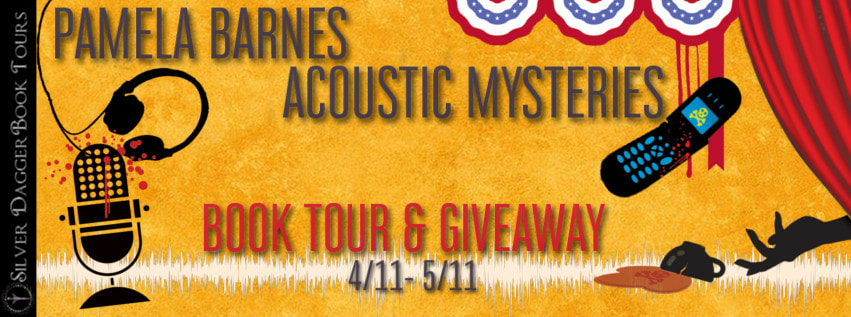
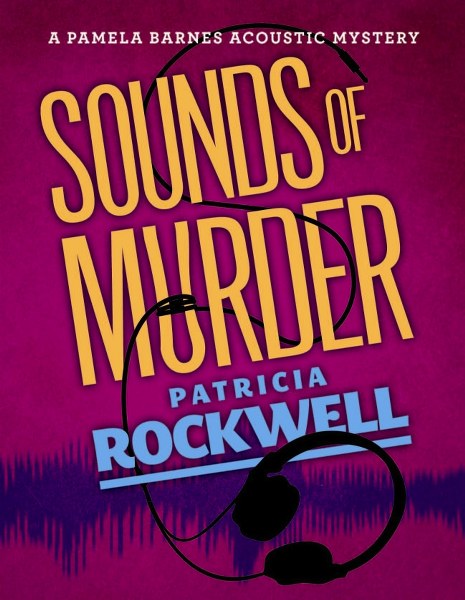

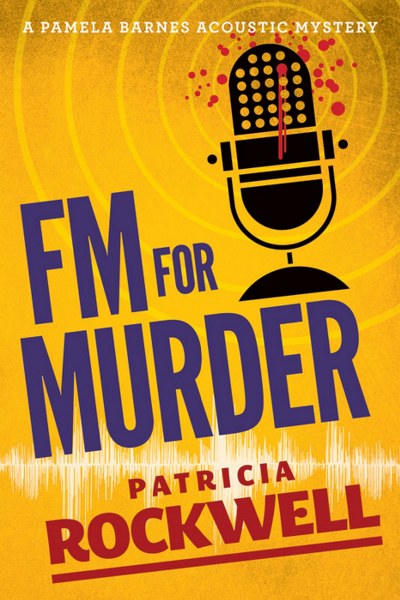
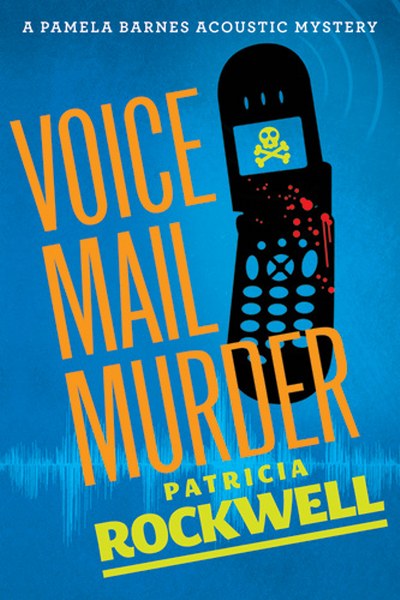
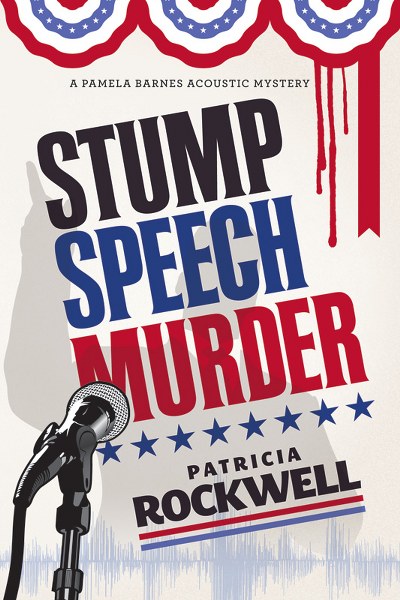
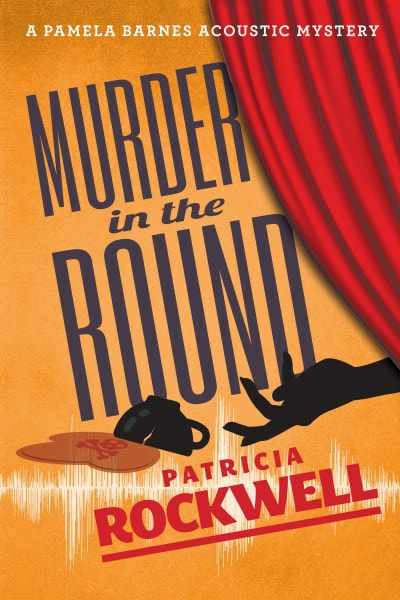




Comments
Post a Comment